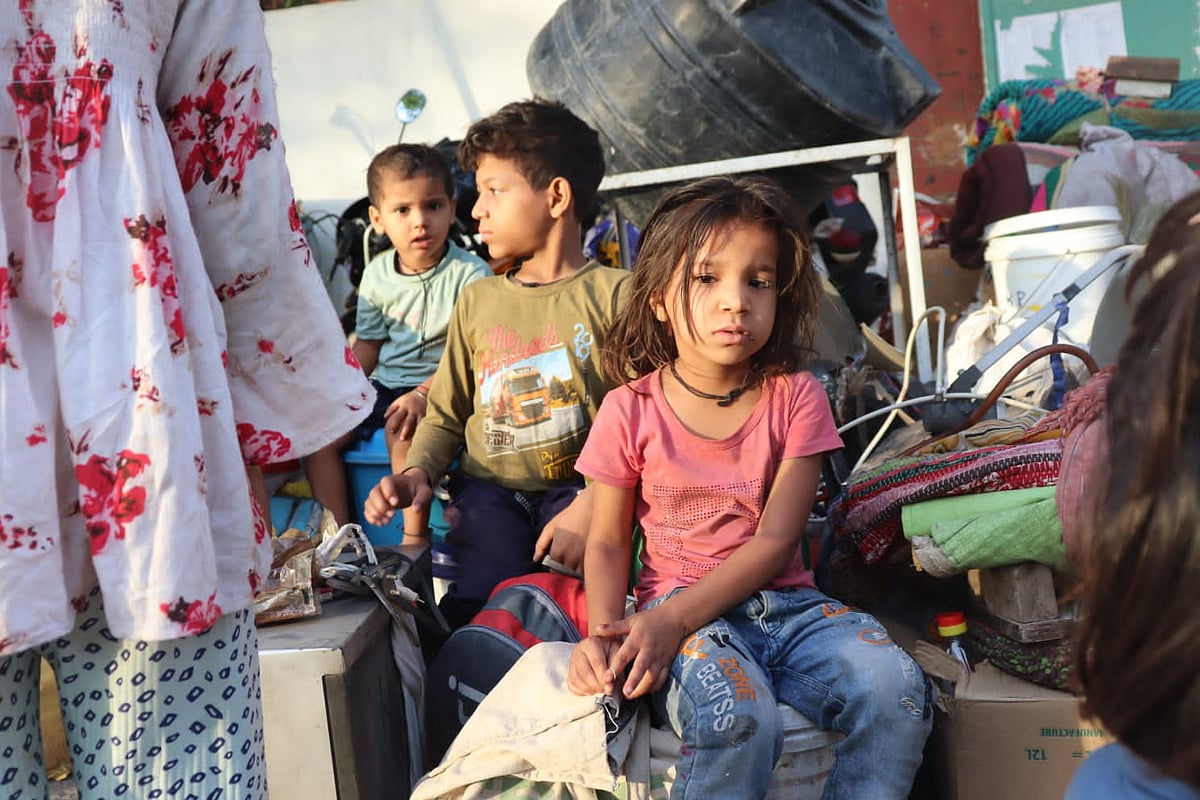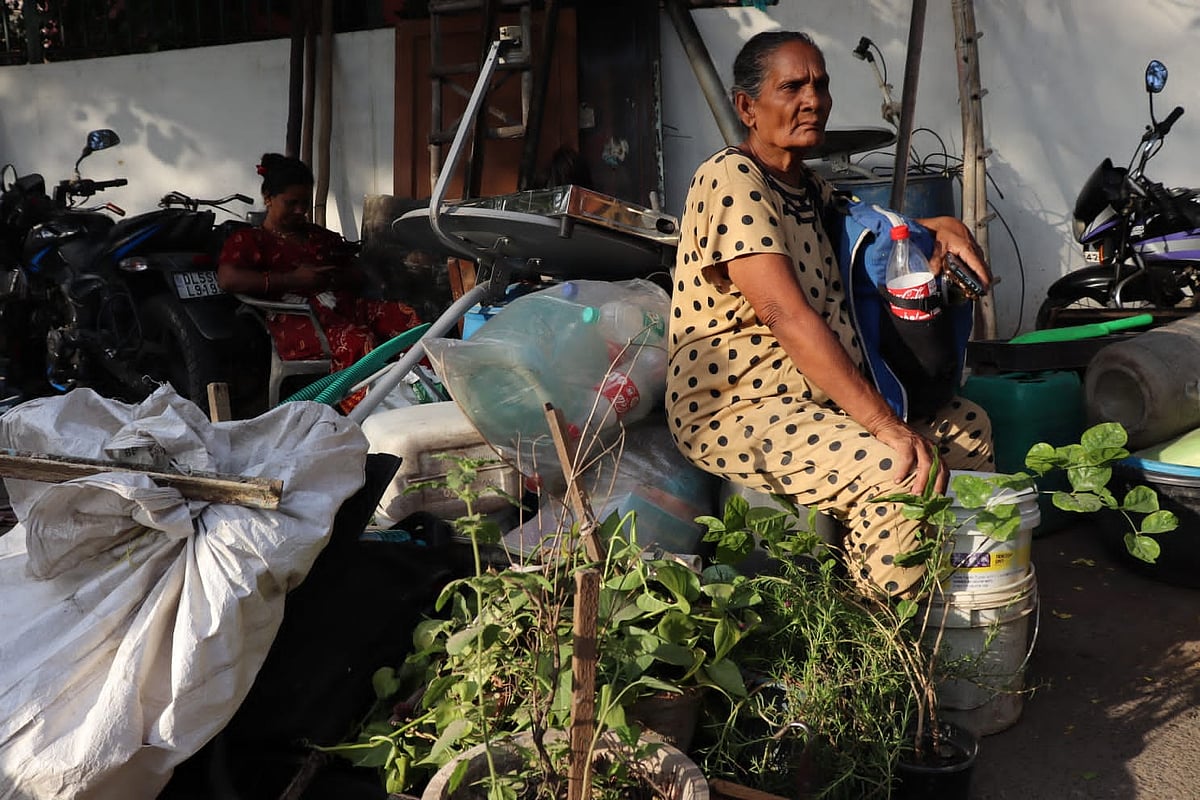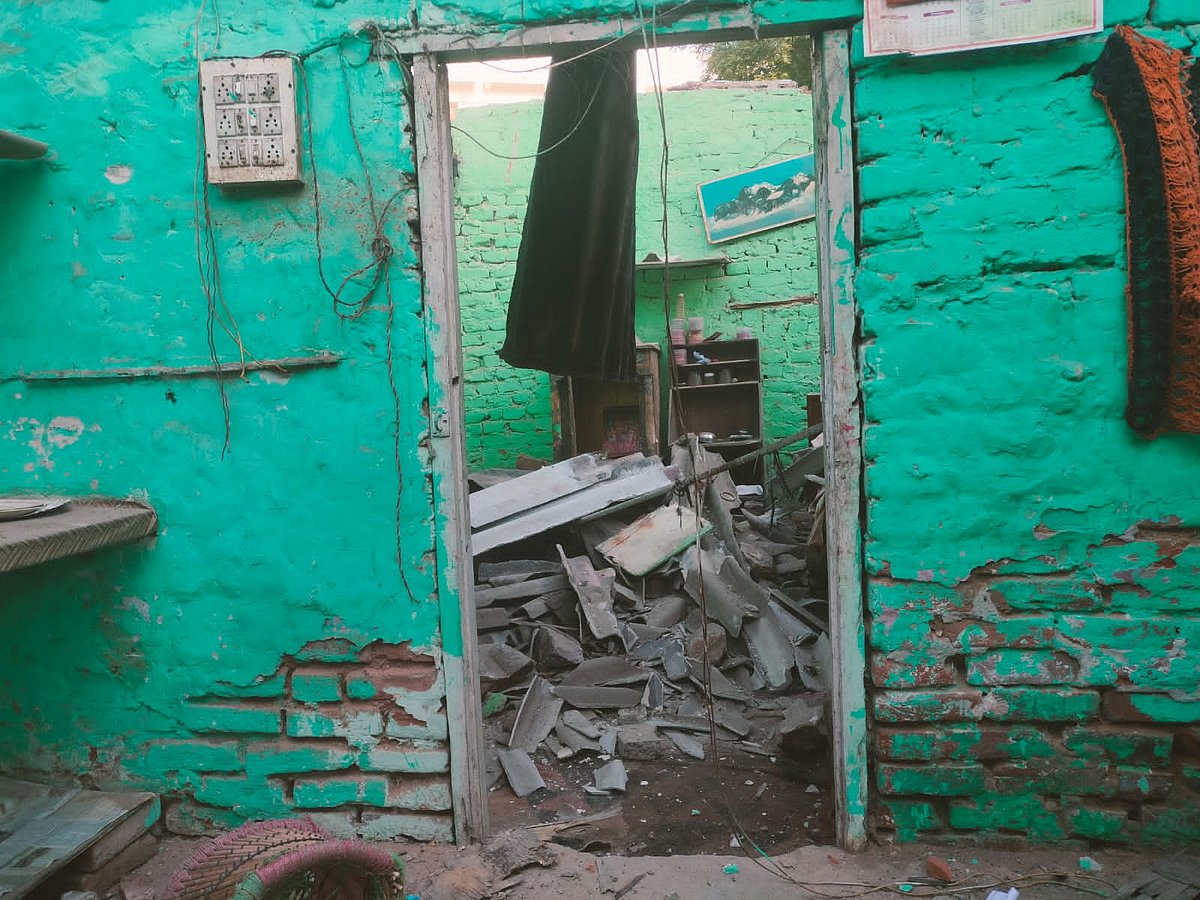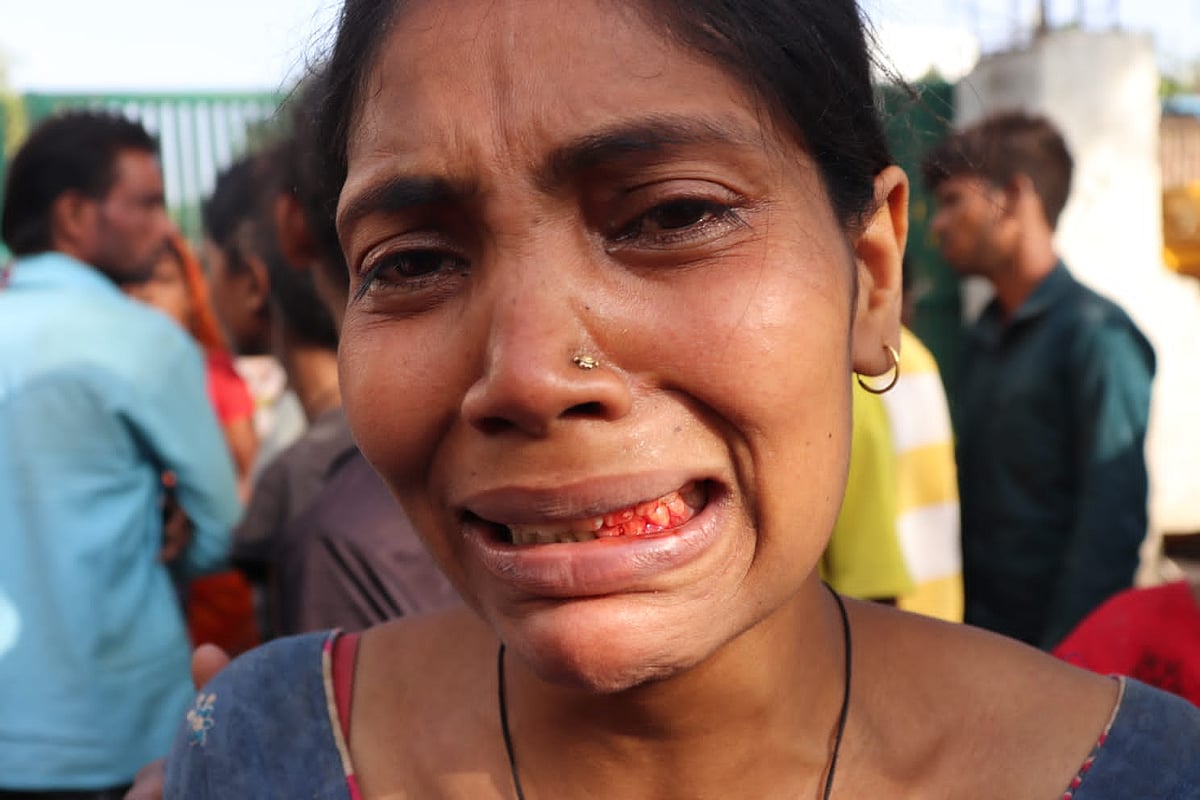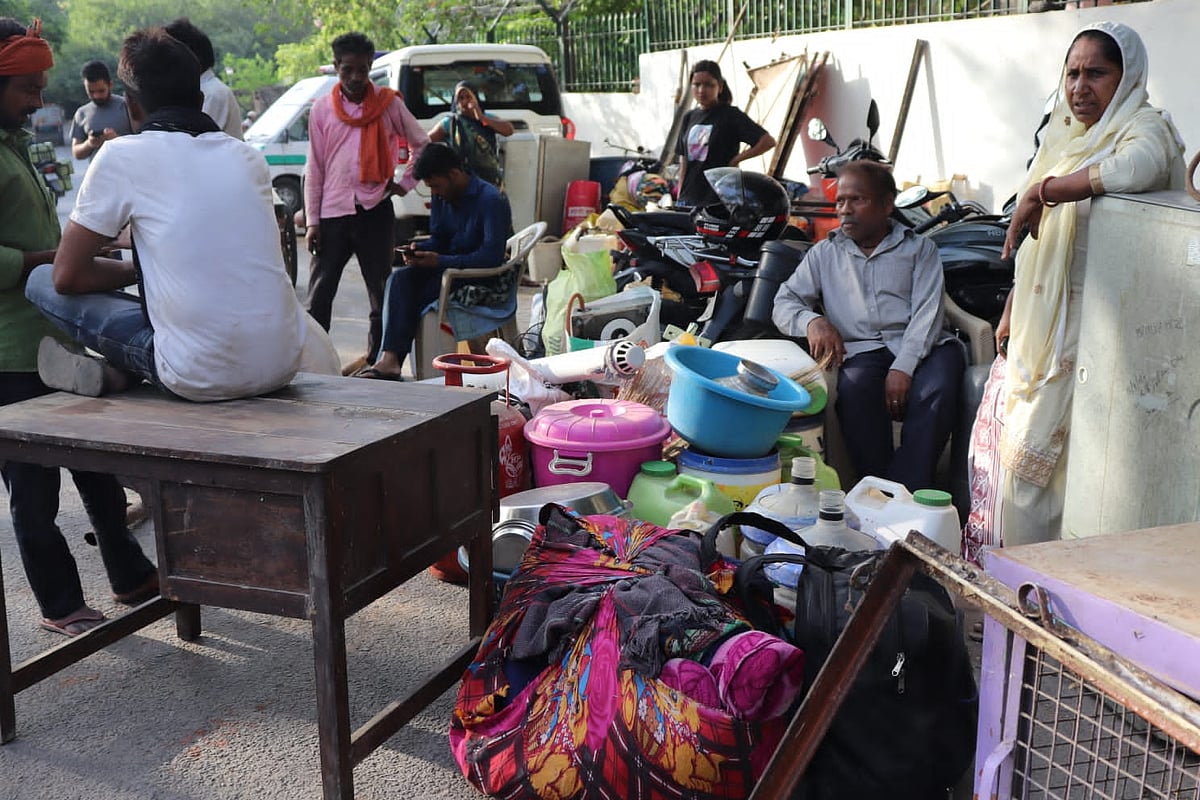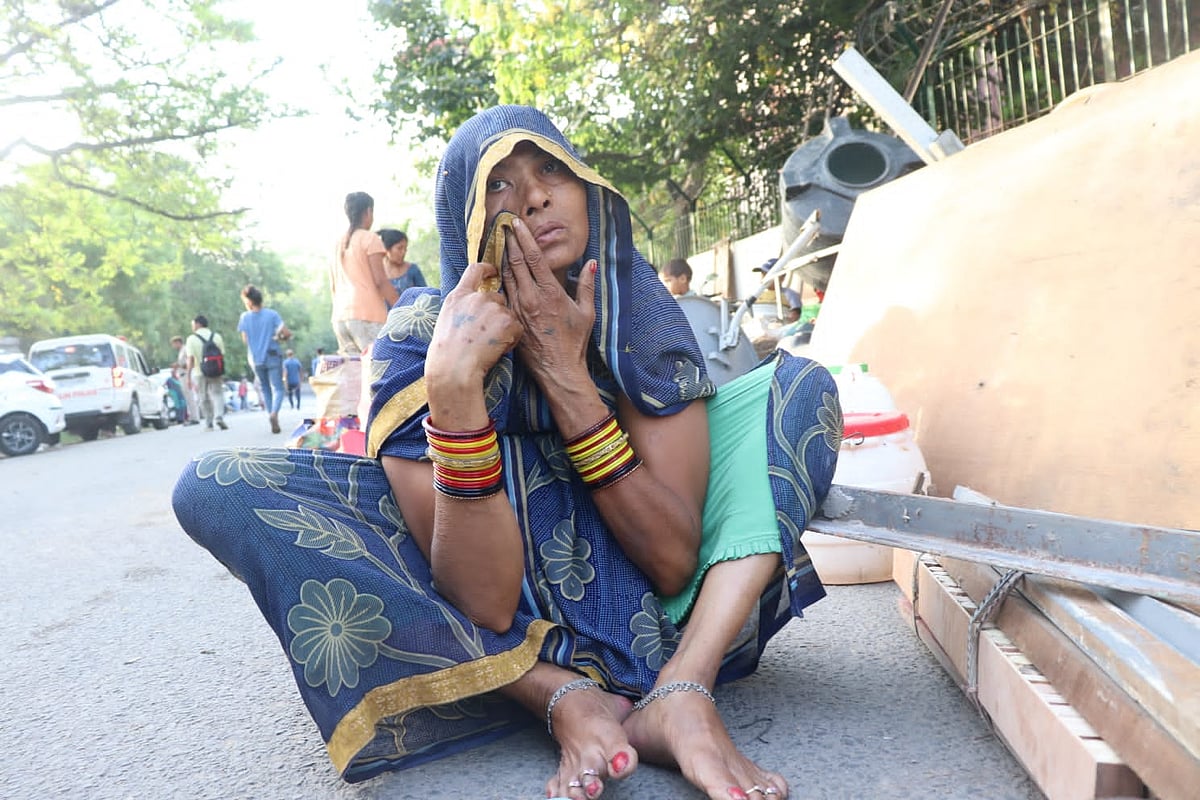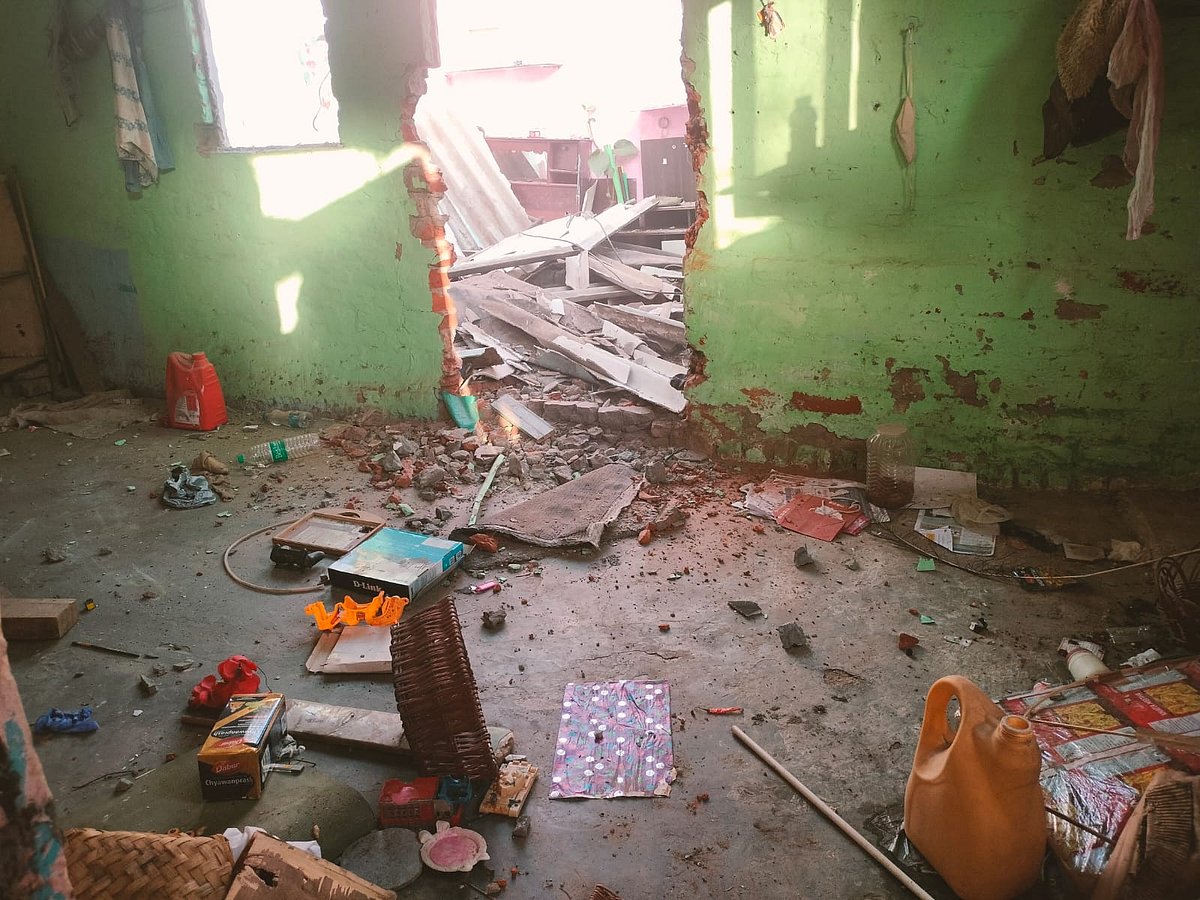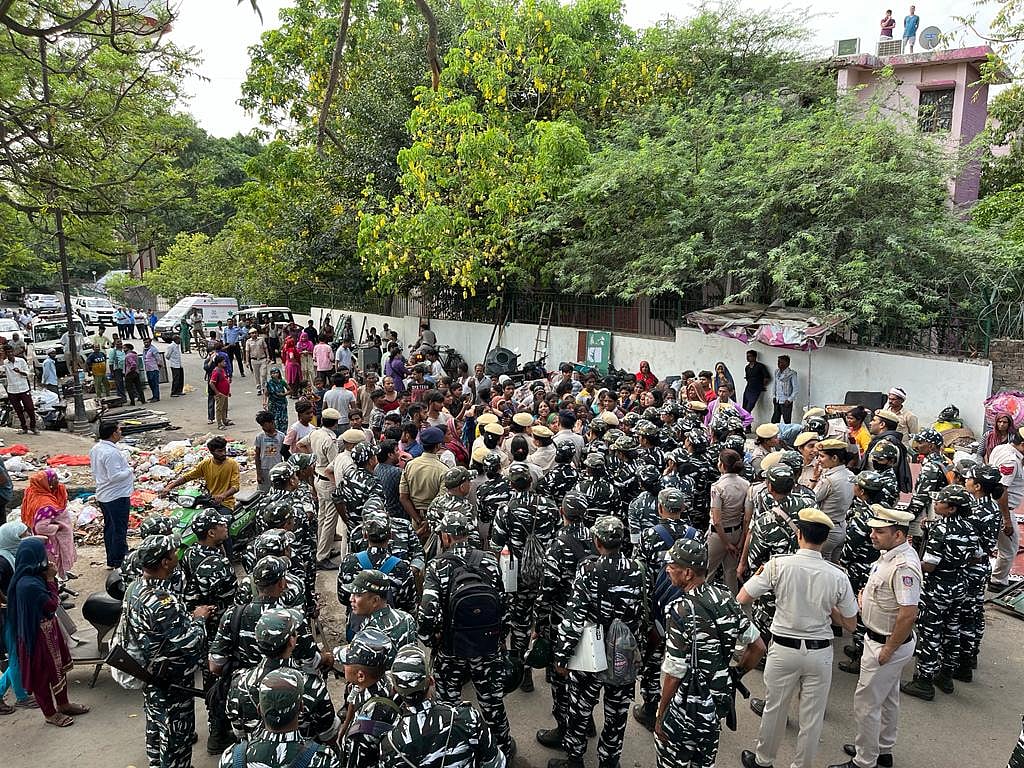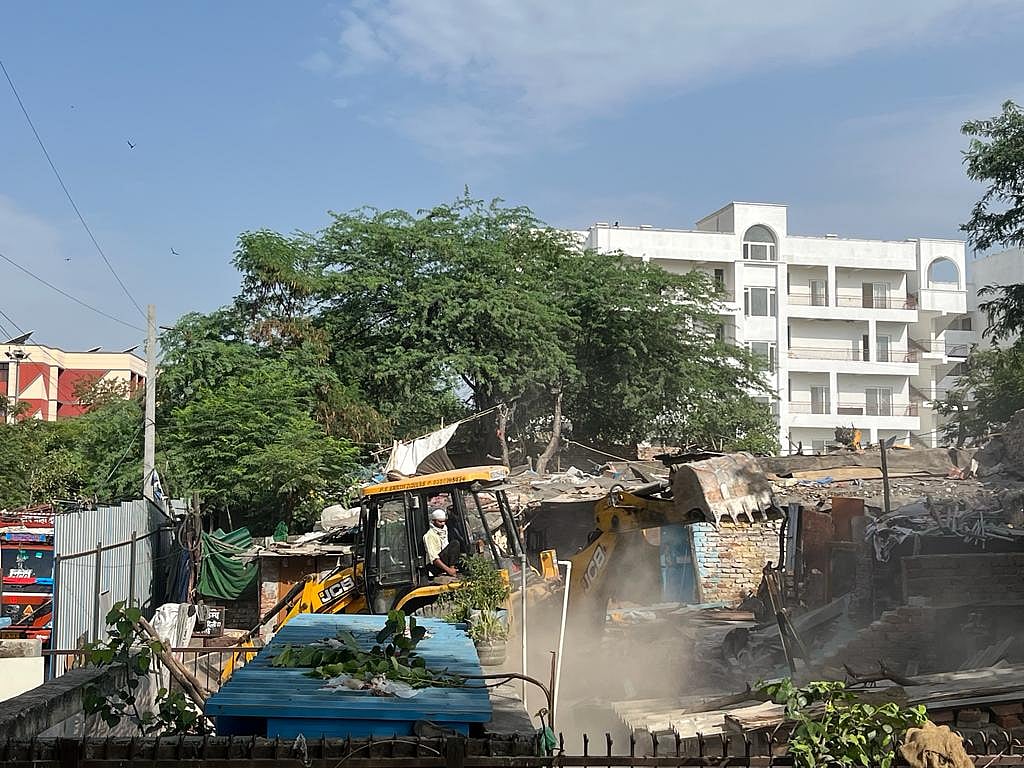Slum-life roulette: Demolition drive at Priyanka Gandhi Camp escalates to shoot-on-sight orders
The Central govt's jhuggi demolition in Vasant Vihar, Delhi, left 500-odd people homeless, but the gratuitous violence of their removal seems another piece of the Centre-vs-state govt stalemate

Rajabai, 52, keeps pacing the periphery of what used to be her home, now enclosed in blue aluminium sheeting that hides that modest space from view. Almost in a trance, she stops suddenly. Her silence turns into a roar as she curses and slaps at the blue barrier, looking to smack the answers out of it.
She is pulled away by former neighbours before she can get any insight or relief. What is crystal clear, however, is that the National Disaster Relief Force (NDRF) now 'owns' what was — and still is, on paper — her permanent address.
This is not just Rajabai's story. It is the story of a 100-odd families who used to call the Priyanka Gandhi Camp (PGC) in Vasant Vihar, New Delhi, their home for the past three decades.
In January 2020, the land it sat on had been purchased from the Delhi Development Authority by the NDRF headquarters in Delhi. During the course of this exchange, the residents of the camp had been given the reassurance of being shifted to a permanent residence by the authorities before the NDRF building would be constructed.
According to a court order from May 30, the slums were part of an additional list of 82 jhuggis/jhopdis (slums) that were yet to be recognised by the Delhi Urban Shelter Improvement Board, which is controlled by the government of the national capital territory (NCT) of Delhi.

The advocate representing the slum dwellers, Kawal Preet Kaur, notes that the fact that in the space of a few months, the DUSIB withdrew the list. The Delhi High Court ordered the residents to vacate the PGC premises and for the time being shift to night shelters (rayen basera) run by the DUSIB until permanent arrangements could be made. While the demolition was carried out by the NDRF, no onus fell upon them to resettle the residents, according to the court order.
According to the Right to Fair Compensation and Transparency in Land Acquisition, Rehabilitation and Resettlement Act, 2013, the residents should have been provided with a permanent residence before any activity pertaining to a demolition was carried out. But the residents seem to have fallen between the stools of the two administrative ambits.
Surprisingly, government officials had earlier visited the site to conduct a head count and survey to quantify the number of people residing at the site. The residents said that the officials who were surveying had said that they would ensure that the residents were provided permanent tenements and then they would "start with their work".
As of now, they have turned residents who had their own homes, alongside Aadhaar cards and Voter's Cards to prove their address, have been turned homeless.
According to the residents, the demolition drive started on June 16, and it was an event of not just anguish but terror. Residents said that over 500 personnel from the Delhi Police and paramilitary forces, such as the Central Reserved Police Force, National Disaster Relief Fund and Border Security Force, all under the Union Home Ministry, flocked to the site. VKPS Yadav, the Assistant Commissioner of Police from Sarojini Nagar, was the principal overseer of operations at the site.
The residents of the jhuggi could barely get their belongings out of their homes when the bulldozing began. Roshni Mandal, 44, a former resident of PGC, said, “We lost all our belongings in the rain. The government gave us a place to stay here, only to take it away. It has been over three decades that we have been staying here and now we have nothing.” Mandal is a mother of two, a son and a daughter, both adolescents. She is the sole earner as her husband’s leg broke while whitewashing a house. "Ab sochna padega ki paise kiraye me de, bacchon ke padhai me de, ya phir khaana kharide (Now we will have to decide whether to use the money for rent, the children’s education or to buy food)," she says. Mandal earns a maximum of Rs 8,000 per month.
Moreover, she said that she had not been to work for a good chunk of a week, almost to the tune of five days. It was, however, not just Roshni Mandal who had been missing work but almost all of the residents had been missing work, in fright of their houses being razed to the ground without their knowledge. Yet, as Mandal says, "Yeh paapi pet maanta nahi (The hungry tummy understands not)," most residents have returned to work, while some have begun looking for other places to stay.
Most of the parents have been having to take their children to their place of work, while some have started leaving them off at friends' or relatives' places. Not one house to call their own.
Many residents said that three generations of their families had lived at the camp since 1980. All of them had come in as migrant labourers from Bihar, Jharkhand, Uttar Pradesh and some other states. The initial 15 families have over the course of almost 30 years risen to 100. During the time that they were here, the residents saw the two schools in the area constructed right in front of them — the School of Hope and the Lalit Mahajan SVM Sr. Secondary School. Many male residents had worked on those construction sites.
Neha Tiwari, a housing rights activist from the AICCTU, said VKPS Yadav had arrived on June 16 and (referring to the residents themselves) said, "Yeh gandagi hatao (remove this filth)." Following this, Tiwari says, the police began using force to move the residents and the activists present. She spoke of an older woman who was dragged so hard by police personnel that her saree fell off and the children had to collect it and hand it over to her.
A man named Raju (name changed) alleged that VKPS Yadav was drunk when he pushed him, resulting in him landing on a street dog in an alley beside the site that had become a makeshift residence for those displaced. He also added that the police personnel had hit children too. This statement was corroborated by several of the female residents, who said that the police were mostly targeting their daughters and the women, and stated that it was the male officers who were using force against them even though female officers were seen to be present in considerable number.
Akash Bhattacharya, AICCTU activist and Communist Party of India Marxist Leninist (Liberation) party secretary from Mehrauli, was detained till the wee hours of the morning on June 16.
Manoj C, deputy commissioner of police at Vasant Vihar Police Station, said that the police personnel had been deployed to the spot only to provide security detail to government officials. VKPS Yadav has denied all allegations of using force.
As of now, no complaint has been filed against the ACP. Bhattacharya said, "No complaint has been registered out of fear of more police brutality since there is round-the-clock police surveillance. On Saturday (June 17) evening, the displaced people had gathered for a meeting at the Buddh Vihar Park. The police and NDRF officers arrived immediately and started filming the meeting, and encouraged the regular visitors to the park to disallow such gatherings despite the fact that it's a public park."
Local councillor Parmila Tokas of the Aam Aadmi Party was not ready to comment on the eviction.
The residents of Priyanka Gandhi Camp are fighting a losing war. The Central government had already taken a key battleground when the property changed hands from the DDA to the NDRF. The case stands that the Centre’s watchdogs, the Delhi Police, will do everything in their power to undermine the resolve of the residents, and that amounts to the use of brutal force. According to the residents, not even children were safe from the lathi charge, and it was all because they dared to stand up against their oppressors.
Also Read: Transforming the face of slums in Delhi
As of now, the NDRF officers stationed at the site have said that they have shoot-on-sight orders if anybody trespasses, and that includes former residents walking in to collect their belongings left behind as they fled from a lathi charge or ran to safeguard their children. Reason? Citing national security seems sufficient.
In 2017, India's prime minister Narendra Modi, had promised all its poor a home to stay in by 2022. However, as of now, the Central government seems bent on breaking down homes of the homeless, rather than building them, and we are all complicit in the demolition derby.
Follow us on: Facebook, Twitter, Google News, Instagram
Join our official telegram channel (@nationalherald) and stay updated with the latest headlines

